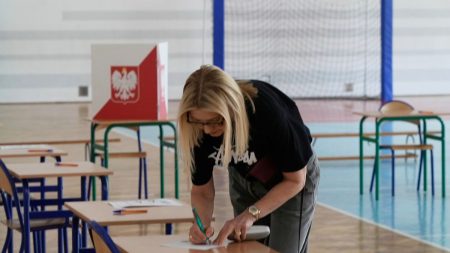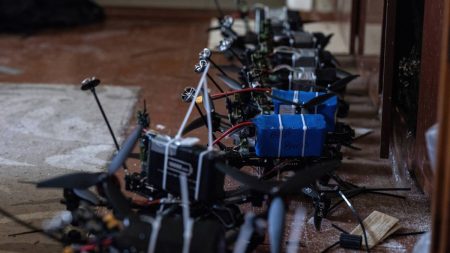The forced deportation and indoctrination of Ukrainian children by Russian forces represents a grave human rights violation and a calculated strategy to erode Ukrainian identity. Mothers like Tetyana Bodak, facing the unimaginable prospect of losing their children to a hostile power, are undertaking perilous journeys through enemy territory, enduring interrogations and threats, to retrieve their sons and daughters. This desperate act underscores the depth of parental love and the unwavering commitment to preserving family bonds amidst the horrors of war. The Russian campaign targets vulnerable families, particularly single-parent households and those with multiple children, offering enticing access to schools and kindergartens as a Trojan horse for indoctrination. This systematic process involves replacing Ukrainian language and culture with Russian equivalents, immersing children in a distorted historical narrative, and subjecting them to relentless propaganda.
The abduction of Vlad, Tetyana’s 16-year-old son, exemplifies the Russian modus operandi. Exploiting a moment of family vulnerability during his grandmother’s funeral, Russian soldiers seized Vlad and transported him to Crimea, ostensibly for a two-week “vacation camp.” These camps serve as testing grounds for loyalty, where children are coerced into singing the Russian anthem and embracing Russian symbolism. Vlad’s defiance, including replacing the Russian flag with his underwear, resulted in solitary confinement, threats of psychiatric institutionalization, and, most disturbingly, suicidal thoughts. This case highlights the psychological trauma inflicted upon these children, forced to navigate a hostile environment where their Ukrainian identity is suppressed and their loyalty questioned. The suicide of another Ukrainian teenager held in Russia further emphasizes the devastating impact of these forced deportations and the urgent need for international intervention.
The Russian strategy extends beyond mere cultural assimilation to military indoctrination. Vlad’s subsequent forced transfer to a naval academy in occupied Kherson underscores this militarization effort. Here, he experienced intensified pressure to renounce his Ukrainian identity and embrace a Russian military future. This aligns with Moscow’s long-term objective of cultivating a generation of soldiers indoctrinated to fight against their own country. The plight of two orphaned boys, forced into Russian military service and sent to the front lines, tragically demonstrates the consequences of this insidious policy. Once granted Russian citizenship, young Ukrainian males are conscripted into the Russian army, effectively turning them into instruments of war against their homeland.
The ordeal faced by Ukrainian mothers attempting to retrieve their children is fraught with danger and uncertainty. Tetyana’s week-long journey through multiple countries, navigating hostile territory and undergoing invasive FSB interrogations, exemplifies the extraordinary lengths parents will go to reunite with their children. Subjected to dehumanizing treatment, including being interrogated with a bag over her head and confined to a basement cell, Tetyana was forced to publicly praise Russia before being allowed to leave with Vlad. This coercion reveals the calculated cruelty of the Russian regime, using children as pawns to manipulate and humiliate their parents.
The psychological scars inflicted upon these children extend beyond the immediate trauma of abduction and indoctrination. Vlad’s initial reticence and emotional withdrawal upon returning home highlight the long-term effects of forced separation and psychological manipulation. Children experience nightmares, flashbacks, and difficulty sleeping, reminders of the horrors they endured. The trauma extends to parents as well, who witness their children’s suffering and endure their own ordeals during the rescue process. Save Ukraine’s rehabilitation program, while a vital step towards healing, underscores the long-term commitment required to address the complex psychological needs of these families. The program focuses on restoring family bonds, providing educational and healthcare services, and reintegrating children back into Ukrainian society.
However, the longer a child remains under Russian occupation, the more challenging the road to recovery becomes. Older children, like Vlad, have a more established sense of Ukrainian identity, making them more resistant to indoctrination. Younger children, with less developed memories and understanding of their heritage, are more susceptible to Russian influence, making their eventual return and reintegration into Ukrainian society more complex. This shrinking window of opportunity highlights the urgency of international efforts to pressure Russia to release these abducted children. The estimated 1.5 million children under Russian occupation since 2014 represent a generation at risk, facing not only the immediate dangers of war but the long-term consequences of forced assimilation and psychological manipulation. The international community must act decisively to protect these children and hold Russia accountable for its egregious violations of human rights.










